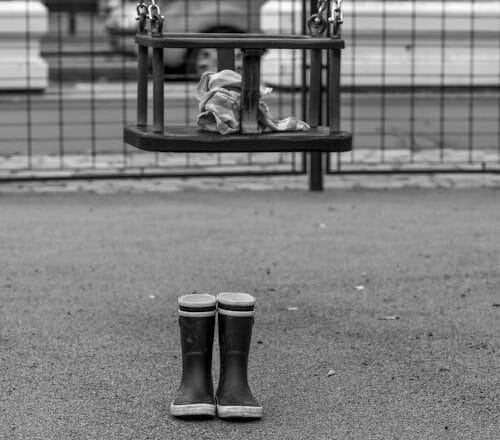PSP figures highlight rising numbers of children acting as drug couriers (and worse)
A new report has shown that children under the age of 12 are being increasingly used by criminal groups in Portugal – principally to run drugs, but also to mug and rob people of their own age.
The report by the commission that analysed juvenile delinquency states that in the first 10 months of last year the police identified 64 children under the age of 12 suspected of being part of criminal groups/ gangs – a number that has been rising since 2019, writes Lusa.
According to the Commission for the Integrated Analysis of Juvenile Delinquency and Violent Crime, the GNR identified 55 children under the age of 12 suspected of being involved in criminal groups by October last year, while the number of children between the ages of 6 and 11 identified by the PSP in the same period was nine.
Speaking to Lusa about the latest figures, Hugo Guinote, head of the Public Prevention and Proximity division of the Public Security Police, said that these children can be involved in various types of groups: “If we’re talking about a gang that is involved in drug trafficking, they often take on the role of transporting small amounts of drugs or money.“
Hugo Guinote, who was part of the commission set up by the previous government to analyse juvenile delinquency, said that there are also children under 12 who commit other crimes, namely robberies and thefts, especially “from other children of more or less the same age”, which is “worrying the police a great deal”.
“Here we’re no longer talking about the same type of criminal organisation (as drug trafficking). We’re talking about group crime, which isn’t exactly a group with an organisational character. These kids end up being in a group committing some crimes, but they’re not a very large group,” he said.
Guinote also emphasised that some of these young people who have been referred by the police and are committing acts that qualify as crimes carry knives.
“These children are all in a situation of danger,” he said, noting that the PSP communicates the situation “immediately” to the Family and Minors court, which can decide to take custody away from the parents and place the children in social support institutions, which are mostly part of the network of the National Commission for the Promotion of the Rights and Protection of Children and Young People (CNPDPCJ).
Guinote added that, as these are children under the age of 12, the courts don’t send them to reception centres.
“Children under the age of 12 are always considered victims and that’s why the protection network’s responses are activated,” he said.
According to the PSP officer, these children generally live with their families and go to school.
“Often, they children are not supervised by their parents (…). Parents work long hours during the day, they’re away from home and these children end up, when they leave school, not having anyone to look after them, or they’re left to other relatives or they’re left to their own devices.”
Contacted by Lusa, the CNPDPCJ declined to provide data on the children signalled by the child and youth protection commissions (CPCJ), justifying it with “reasons of reserve and confidentiality”.
“The Commissions for the Protection of Children and Young People work on their promotion and protection processes individually and using all the community resources and conditions necessary for this purpose. The implementation of the Local Children’s Rights Plans, and coordinated intervention with the entities with responsibility for children and young people. The more attentive and dynamic the community is, the less situations of possible juvenile delinquency will arise,” says the commission.
The latest report available from the CPCJ, for 2022, indicates that it acted in at least 20 cases that year in which children under the age of 12 committed “acts qualified by criminal law as criminal offences”.
The juvenile delinquency report also indicates that in 2023 the figures reached their highest levels since 2015, while group crime had not been this high since 2013.
Hugo Guinote said that the majority of young offenders are between 12 and 16 years old, mainly commit crimes of theft and offences against physical integrity and use weapons, most of the time knives.
Surprisingly it is not only the metropolitan areas of Lisbon and Porto that see these kind of offences. There have been cases – admittedly only “a few” – in Setúbal and the Algarve.
“They’re all of school age and often go to school. They don’t stop going to school, but when they’re out of school, they end up indulging in marginal activities and committing crimes. These are mainly crimes against property, but then, using violence, they end up turning into crimes against physical integrity in which they steal to get money or items that people have in their possession, such as mobile phones and/ or clothes,” said Guinote
To combat this phenomenon, the PSP has been organising various awareness-raising activities in schools and “the results have been very positive” – with a significant reduction in the number of incidents involving weapons in school, he said.
However, he emphasised, many of the crimes take place outside of school, and the police are now directing their efforts towards enforcement actions in the context of evening ‘social gatherings’ where there is a greater potential for conflict.
News pages these days are full of accounts of young people hurt or worse in ‘nighttime incidents’ throughout the country – a phenomenon that was much more of a rarity until this last decade.
Source material: LUSA




















